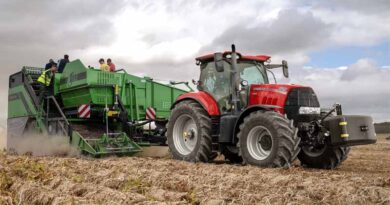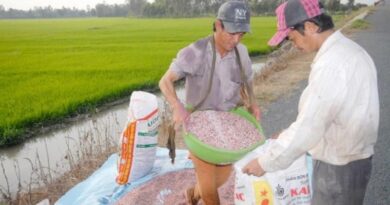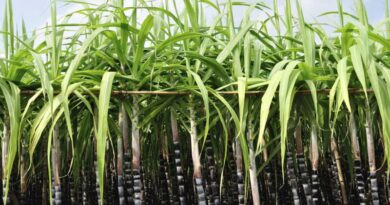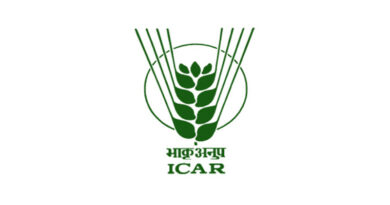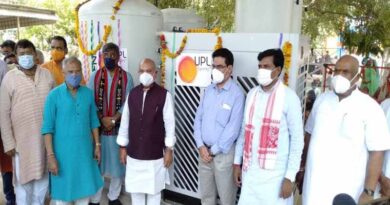Automation, digitization, disintermediation essential for creating a global perishable supply chain
04 September 2020, New Delhi: The unanticipated COVID-19 pandemic has undoubtedly impacted perishable supply chains across the globe, but notably at the same time has opened doors for innovations to respond to these challenges.
Read: Vietnam rice in the global market
It has been observed that supply chains are now being assessed and monitored for risks and alternate solutions to guarantee continuity in supply especially across perishables. The emergence of new business models and focus on innovation either by optimization of existing supply chains or exploring new modes of movement has led to changes in existing structures in terms of competitiveness, inclusiveness, scalability and sustainability.
It is in this context that, Confederation of Indian Industry (CII) organised, the 9th National Post-Harvest and logistics Summit on the theme “Future proofing of Global Supply Chains for Perishables on 2nd & 4th September 2020 Digitally.
Read: Record area of 1095.38 lakh ha has been covered under Kharif crops
Speaking at the summit, Dr. Ashok Dalwai , Chief Executive Officer, National Rainfed Area Authority, Ministry of Agriculture and Farmer’s Welfare, Government of India, spoke about how the Credit guarantee fund under Atma nirbhar Bharat, has increased confidence of the banking sector and its appetite to lend to the Agri sector , he also highlighted how the recently announced policy reforms are creating the right ecosystem to enable investment in agricultural logistics and the supply chain by private sector.
Mr. Pawan Kumar Agarwal, Special Secretary, Logistics highlighted the efforts being taken by the current government with focus on end to end supply chain solutions where in transportation, Packaging and Infrastructure at the farm level are critical for marketing of the produce. Mr. Aggarwal suggested Democratisation, formalization, modernization, professionalisation and standardisation as five pillars for logistics to succeed.
Read: Crop insurance in five districts of Madhya Pradesh till 7th September
Mr. Gagandeep Singh Bedi, Principal Secretary &Agricultural Production Commissioner, Government of Tamil Nadu , speaking about the initiatives taken by Tamil Nadu state to reduce post-harvest losses and strengthen the supply chain mentioned that Tamil Nadu government has invested 492 cr. towards cold supply chain infrastructure across the production cluster to benefit farmer. He also appreciated the new ordinances as quite progressive and emphasised on the implementation and uptake by the famers as priority for the state.
Mr. P.K. Swain, Joint Secretary Ministry of Agriculture & Farmers Welfare highlighted that agriculture reforms are enabling a seamless movement of perishables across the country. He mentioned that Logistics was a huge challenge for farmers for getting produce to market during the time of lockdown, as a response, Kisan Rath was launched for connecting farmers to the markets using trucks and Tractors. He emphasised on the Fivefold strategy for the supply chain that focusses on Policy intervention, Infrastructure promotion for integration of supply chain, Technology promotion, Food safety & Quality and digitisation of online trading.
Read: Asia-Pacific countries pledged bold and innovative action for food security and livelihoods
Dr. Bijaya Kumar Behera, Economic Adviser, Ministry of Food processing, Government of India emphasized on the need of Smart logistics systems, to make agri logistics more Accessible and affordable especially for connecting North-eastern region of the country. Dr. Behera also spoke about the various schemes and initiatives of Ministry of Food processing with focus on developing cold chain infrastructure in the country.
Mr. Devraj Panda, Additional member Commercial, Railway Board speaking on the importance of railways mentioned that Kisan rail initiative is a step towards strengthening the supply chain and highlighted the need to identify more fruits and vegetables to be moved across long distance using railways.
Read: Excellence in Agronomy 2030 initiative to launch at African Green Revolution Forum
Mr. P.Ravichandran , Chairman , CII Task force on Post-Harvest and Logistics & President , Danfoss, reiterated the need to connect production and consumption centres, leveraging multimodal logistics to optimize and reduce logistics and post-harvest losses.
During the two days discussions on the emergence of new supply chain models, Technological Advancements, and uptake of multimodal Supply chain were held. Automated ware-house operations and order placement methods, satellite procurement focusing on farm level aggregation and expansion of business to smaller cities to cater to larger segment of people , use of Artificial Intelligence, Cryogenics & Space thermal engineering and Blockchain technologies , Containerization of agriculture produce, use of waterways , railways and upgradation farm gate with facilities of aggregating goods, preconditioning and loading into containers emerged as key highlights.
The Summit took place over a virtual platform along with an exhibition wherein 20 companies in the area of post-harvest , cold chain and logistics displayed their solutions.




